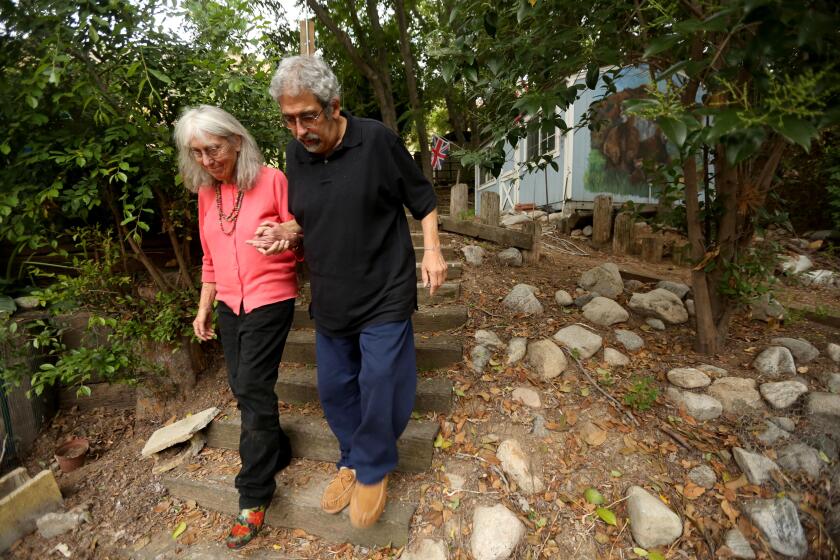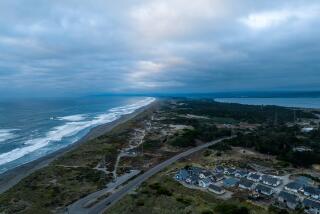These Southern California counties have some of the highest cases of Alzheimer’s disease

- Share via
Four Southern California counties recorded some of the highest numbers in the nation for Alzheimer’s disease, with cases expected to increase in the next few years as the state’s population ages, according to a new report by the Alzheimer’s Assn.
The report, which was shared at the 2023 Alzheimer’s Assn. International Conference in Amsterdam last week, is the first to estimate the disorder’s prevalence and number of people diagnosed at the county level in the U.S. Researchers reviewed 3,142 counties across the country.
“There’s quite a bit of variation in the disease across the U.S., and looking at the county level helps us see how it varies from region to region within a state,” said Kumar B. Rajan, the director of the Institute for Healthy Aging at Rush University Medical Center in Chicago and an author of the study.
California, with its large population of people older than 65, has the highest number of Alzheimer’s diagnoses in the country at about 720,000, according to the report. The degenerative disorder is caused by damage to brain neurons that eventually disrupts basic bodily functions.
Los Angeles County ranked as the county with the most people diagnosed with Alzheimer’s dementia at about 108,000, according to the report. Orange and San Diego counties also made the top 10 list for total cases.
When measured by the rate of prevalence for the disorder in people older than 65, Imperial County ranked as one of the nation’s highest, with 15%, according to the study. Miami-Dade County in Florida had the highest rate of Alzheimer’s in the country, 16.6%.
In Los Angeles, the disorder has a 13.2% prevalence rate. The rate was 11.6% in Orange County and 11.8% in San Diego. None of these Southern California counties ranked in the top 10 for that metric.
A gold rush in Alzheimer’s pharmaceutical research raises questions about whether aging seniors being recruited for trials in California understand the process and possible risks.
María P. Aranda, executive director of the USC Edward R. Roybal Institute on Aging, said the report could help counties prepare for an increase in diagnoses of Alzheimer’s in the coming years.
“We’re going to see an overburdening of our health and social systems,” Aranda said. “Our clinical care and public health system are not prepared yet to help individuals and family members living with Alzheimer’s disease.”
Age is the most determining factor of Alzheimer’s disease, and nearly 6 million people older than 65 live in California, according to the report. Researchers expect to see state cases climb by more than 20% between 2020 and 2025, bolstered by an aging diverse population.
Black and Latino older adults are at an increased risk for Alzheimer’s because of disparities in healthcare. According to the report, 19% of Black and 14% of Latino adults over 65 have the disorder, compared with 10% of older white adults.
“Although there has been considerable attention to Alzheimer’s in the last few years, people still have a very low level of knowledge of what memory loss and dementia are,” Aranda said. “There is a high level of stigma that’s still attached to those terms.”
There’s no remission and no cure for Alzheimer’s, but a Southern California couple find support as they negotiate memory loss.
Alzheimer’s disease was the sixth-leading cause of death in the U.S. in 2019, according to the Centers for Disease Control and Prevention. Older adults with the disorder live an average of four to eight years after diagnosis.
But Susan Howland, senior director of programs for the Alzheimer’s Assn.’s California Southland chapter, remains optimistic.
Alzheimer’s disease can begin to take hold about 20 years before the onset of symptoms, allowing people to make healthy lifestyle changes before it progresses.
California in 2019 launched an Alzheimer’s prevention and preparedness task force to brace for an increase of cases.
“Clinical trials and research like this give us all hope that we have tangible tools and resources that can reduce our risk for developing dementia and cognitive decline in later life,” Howland said.
More to Read
Sign up for Essential California
The most important California stories and recommendations in your inbox every morning.
You may occasionally receive promotional content from the Los Angeles Times.
















